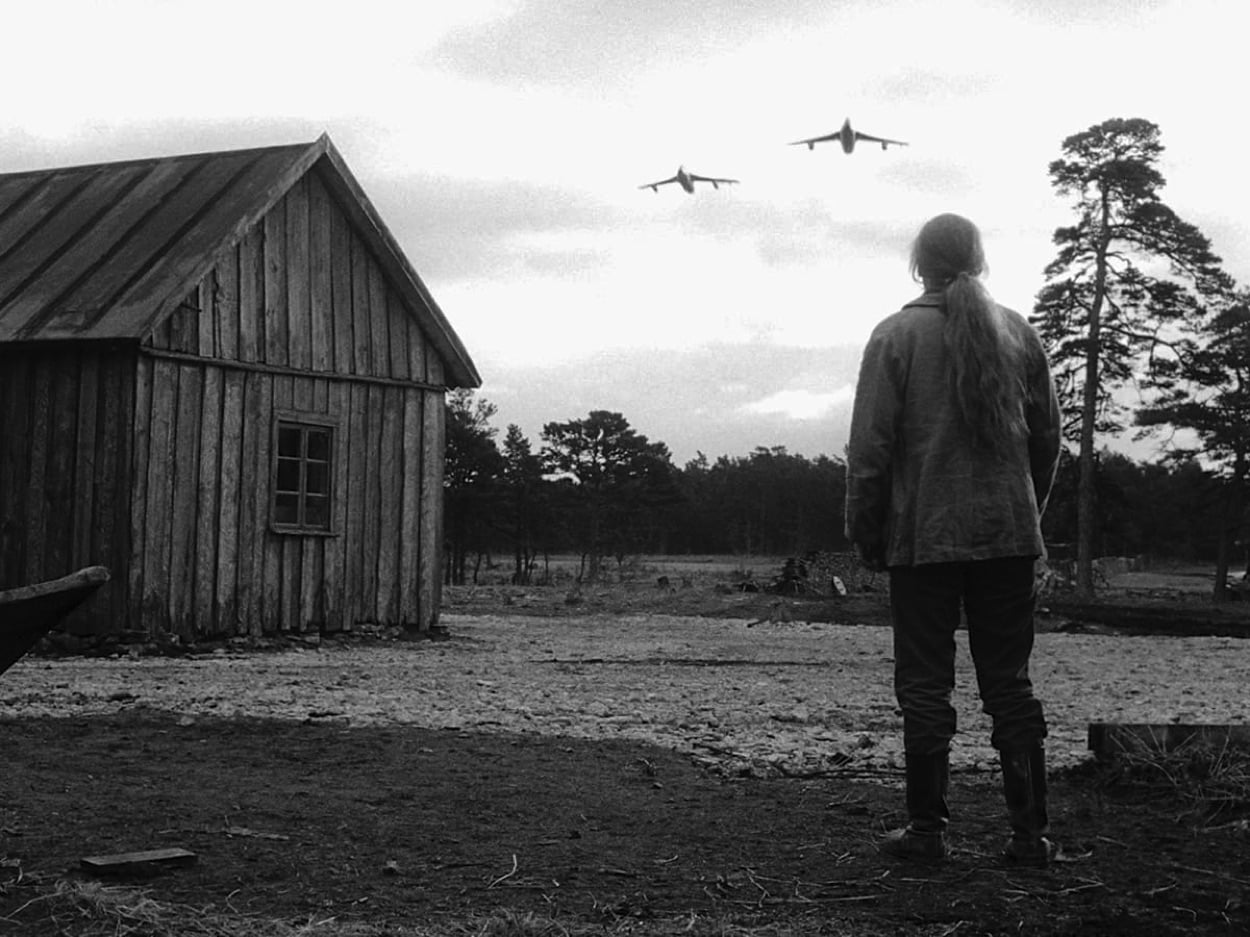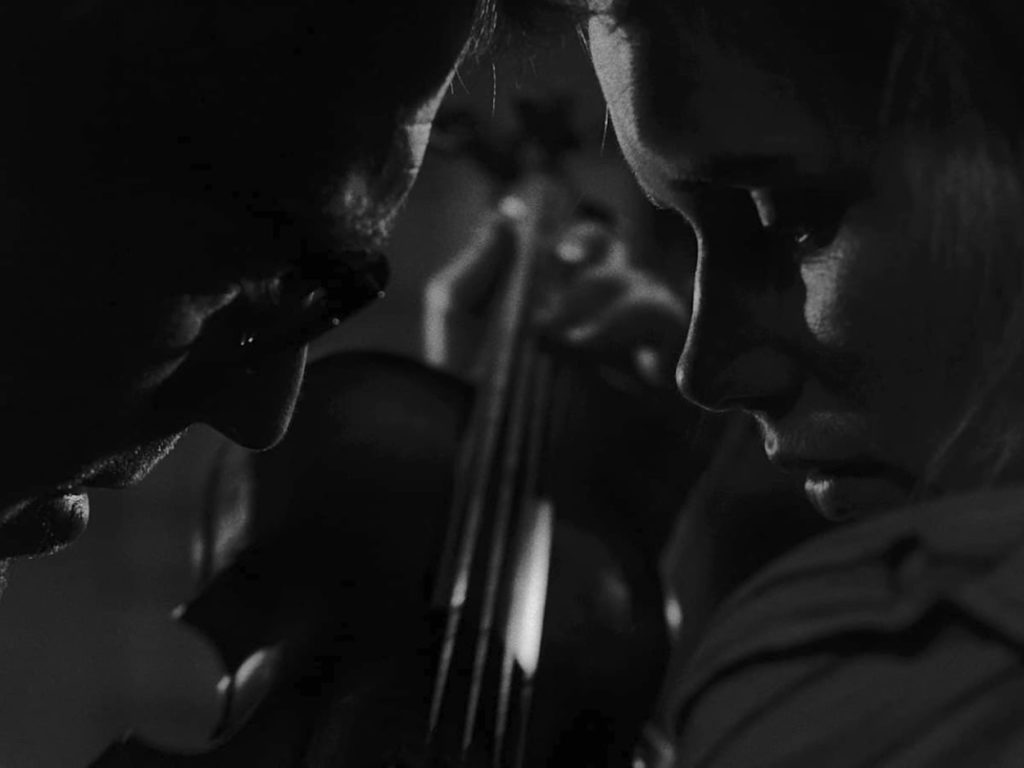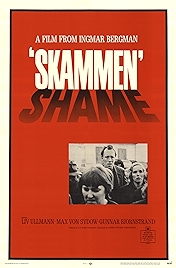Shame is Ingmar Bergman’s war movie. Except, being an Ingmar Bergman movie, it’s really about relationships, a marriage in trouble (probably Bergman’s own – number four was heading for the exit), and something else on top. Kriget (The War) was Bergman’s original title for it, but Skammen (literally, The Shame) is what Bergman settled on.
So, not a generalised Shame but a specific instance of it. What that shame might be precisely is what Bergman will eventually reveal, but he starts out by painting a portrait of two former orchestral musicians (wife number four, Käbi Laretei was a concert pianist) who have given it all up to live the good life, growing and selling vegetables, living in a rough and ready way out on one of the islands of the Swedish archipelago. In the opening scene setting the tone for the rest of the film, Eva (Liv Ullman) bounces out of bed in the dark, rips open the curtains and sets about making a start to the day, huffing away in a vaguely annoyed manner. Jan (Max von Sydow), pretending not to notice her mood, follows, using charm to placate his wife, making smalltalk until she eventually capitulates and gives him a smile.
Some more smalltalk establishes their characters more clearly – she’s strong, he’s weak – and solidifies the shaky state of their relationship, which has love in it, but a certain amount of contempt (her for him) and condescension (him for her).
Bergman gives us a bit more background – this is 1968 Sweden but maybe one in an alternate universe – before quickly moving on to the war, which rapidly escalates from rumours of troop movements to shots of trucks laden with soldiers, to planes buzzing the smallholding of Jan and Eva. Rebel soldiers arrive, and Eva is forced into taking part in a filmed interview with one of them. The other side arrive and Eva and Jan are treated as collaborators. The rebels return and there are more consequences. In the middle of it all are Eva and Jan, bewildered at the changing situation, with “no political affiliation” as Eva says to the rebels early on. They’re just two people trying to scratch a living from the ground.
Two years before Bergman made his film, Peter Watkins had made The War Game for the BBC, a drama shot in a documentary style about a nuclear attack on the UK and its aftermath. The BBC didn’t show the film for nearly two decades but it got a theatrical release in the USA and went on to win the Oscar for best documentary in 1967, in spite of the fact that it isn’t a documentary.
Bergman and his DP borrow a bit of Watkins’s apocalyptic, chaotic, vérité vibe for the scenes in the film where Jan and Eva are shunted from one army to another, herded into interrogations, Jan and Eva barely distinguishable in the lumpen mass. Sven Nykvist’s camera dispenses with the elegant compositions and beautifully calibrated exposures of the rest of the film. The images become murky, jittery and full of the untidiness of real life. We lose our bearings on Jan and Eva as they lose their bearings on morality and end up doing things they will later be ashamed about and which centre on Jacobi (Gunnar Björnstrand), the town mayor, with whom they are both friendly.
Even by Bergman’s standards the final scenes are bleak, with dead bodies everywhere, as much a manifestation of inner moral desolation as the effects of war.
Marriage is a battleground seems a bit crass as a thought, a metaphor that doesn’t need stating – alls’s fair in love and war etc is a cliché, after all. But a marriage that ebbs and flows according to external events – they pull together when things look like falling apart – is the story Bergman is telling. Relationship meets war meets existential crisis in a grim dystopian somewhere. It’s a powerful mix.
Shame – Watch it/buy it at Amazon
I am an Amazon affiliate
© Steve Morrissey 2022


